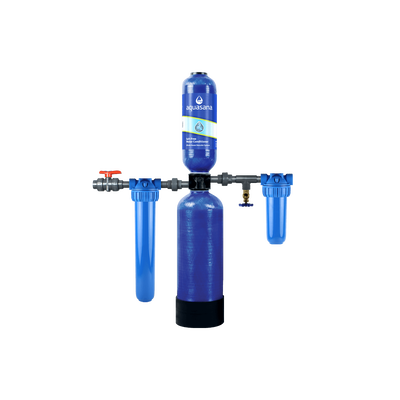5. Exposure to chemical byproducts from chlorine-treated water
Most city water treatments use chlorine to treat and disinfect water and kill harmful bacteria before it’s parceled out to residents at their homes. This chlorine gets removed before it leaves municipal treatment, of course, but trace elements can remain in our water supply.
Generally, small trace amounts of chlorine are safe in drinking water, but combined with other trace elements that naturally occur in water, it can produce hazardous chemicals known as disinfection byproducts, like chloroform and bromoform.
Is filtered water good for cats and dogs?
There’s hope in keeping your best furry friends healthy because filtered water is good for both dogs and cats. And there’s plenty of ways to provide the whole family, whether human or animal, healthy water that nourishes them (no matter the circumstances of your water) thanks to state-of-the-art filtration. In fact, in our 6th Annual Water Quality Survey we learned that more than half (55%) of pet owners give their pet filtered drinking water.

For something portable or if you’re renting, Aquasana’s Clean Water Machine filters 78 contaminants including lead, not to mention it’s a sleek addition to your countertop. It’s filtration that you can take with you no matter how many times you change your address.
Still, other filters can cover ever the whole house and give you healthy water straight from the tap. For whole home coverage, look no further than the Rhino® Whole House Filter, which will filter 97% of chlorine and other contaminants from every tap in your home for 1,000,000 gallons or 10 years. For enhanced performance and protection, you can also upgrade the system with add-ons like a Salt-Free Water Conditioner to address hard water and a UV filter to tackle viruses and bacteria that can pose risks to your pets.
Regardless of what water filter you pick for your pets and family, you’ll rest easier knowing you’re giving them water that’s cleaner and healthier.



